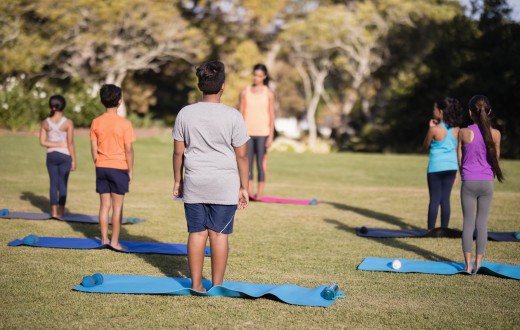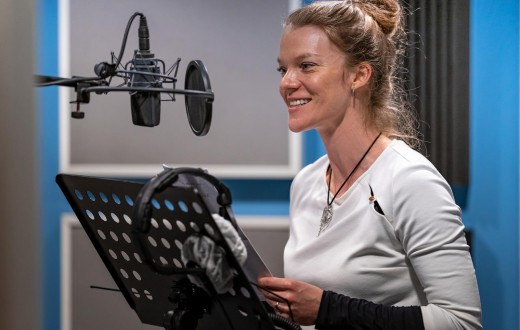Let’s face facts: Being an actor is the best job in the world! Sure, there are challenges to the job, but even with all the hard work, auditions, late nights and early mornings on set, the classes, the memorization and even all the rejection, acting is the most fun you can have without getting arrested. And for it to be a job where you get paid money is more than any sane person should ask for!
The great news is that acting is getting easier than it has ever been — or at least looking for acting work is. For instance check out NYCasting’s audition opportunities – and self-submit today! There’s no better place to putting yourself in front of the widest range of casting directors and producers who are looking for actors today!
One other new innovation almost all of these acting opportunities have in common is that you will need to self-tape at least once in order to be considered. That’s why it’s so important to make sure you’re on point when it comes to your on-camera auditions, especially when you’re self-taping. Here are a few ways to make sure you’re giving them the best you’ve got every time you audition on camera!
1. Put On Your Director Hat
Whether you’re self-taping or preparing to go in for an on-camera audition, it’s vital you take some time to play director as well as actor. That means taking the time to really study yourself and what you look like on camera. One of the biggest mistakes actors make when it comes to self-taping is they’re often unprepared for the technical aspects of it. Every self-tape opportunity that comes along they act like it’s the first time they’ve ever heard of such a thing. They go into panic mode and flail around getting a rushed self-tape piece done and sent off.
And then they cross their fingers and hope for a phone call that’s never going to come.
Much like we do with the actual acting part, it’s a good idea to rehearse. At the very least take the time to look over other self-tape auditions you’ve done. Study what you look like on camera and work on any quirks you might be throwing out there – which you will often be unaware of! Bobbing your head in time to words you emphasize in your lines, blinking too much, or darting your eyes around are all very common tics – and they’re all very distracting.
As mortifying as it can be, you really need to watch yourself a lot in order to even know what you look like on camera. And then you need to watch yourself even more as you go about correcting it. The camera picks up on and vastly magnifies these tics – and we all have them! Don’t stress about them, nor should you feel as if you have to stay perfectly still. You want to aim for natural, of course. But as they say, knowing is half the battle, and that applies to knowing what you look like on camera.
2. Know What You’re Saying
No, really. It’s hard to overemphasize how important it is to really know not only your lines, but what lies beneath them, the true depth of what your character is trying to achieve. We all are aware of this, of course. But the fact remains we also have all at one time or another rushed it when it comes to thinking we’re truly off-book. This ties in with the first note above when it comes to self-taping: the tendency is to rush and record a self-tape before we’re really ready to give it our best.
And granted, there is almost always a time factor when it comes to sending in a self-tape audition. But sending in a piece before you’ve got it down solid is less than useless – you might not think CDs remember you out of the thousands of actors they see, but if you send in a few sloppy, under-prepared self-tapes you might find the offers to record new ones drying up.
So make sure you’re giving them your best! Here’s another place where we can use our training in and understanding of the importance of rehearsal to our advantage. That is to say, the more often you turn around self-tape pieces the better you’re going to get at it, and the faster you’ll get at memorizing and going deep on the material too. Recording a monologue or two to self-evaluate can’t hurt either as you work on getting better. After all, it should only take one to two minutes to knock out a monologue! The main thing to keep in mind is to recognize in yourself when you are truly ready to hit record on a self-audition, and to make sure you’ve got those lines internalized and that you’re fully embodying the character.
3. But Don’t Only Know One Way To Say It
The thing about rehearsing is that it is possible to over rehearse. Perhaps the biggest challenge in the actor’s life is learning to recognize that fine line and understanding how not to cross it. Knowing the words and the objectives they impart to your character is just that: it doesn’t imply that you’re going to say the words the same way every time, or use the same tactics to try to achieve those objectives.
It’s vital to be nimble mentally and emotionally, to be figuratively light on your feet when it comes to on-camera and self-tape auditions.
Think of the difference between a boxer and a wrestler: a wrestler is plodding, solid, low to the ground – he is the unmovable object.
A boxer, on the other hand dances around his opponent, he bobs and weaves and is constantly in motion as he seeks an opening for attack. The opponent, and the objective – which is beating him – doesn’t change. But the boxer’s approach to beating him is constantly in flux, in motion, and changing in the blink of an eye. Be like the boxer: be ready to adapt and to attack the objective from an endless variety of angles.
4. Be
That is, don’t act. Dovetailing with the note above, the way to really stand out on camera and especially in a self-tape audition is to show you’re fully engaged and of a piece with the scene you are playing. Yes, you are going into a character. But the more that character seems like a real person, the better the response is going to be. A big obstacle for less-experienced actors when it comes to self-taping and really any kind of on-camera auditions is managing to put aside the nerves and awareness of the camera. Again, practice is your friend here: the more time you can spend in front of the camera whether it be in self-taping monologues, performing scenes with your friends, creating your own work for YouTube or actually working on set, the more you’ll be able to forget about the camera and just be.
5. Ramp Up Into It
Another valuable tool is to always remember the moment before and the moment after. If you’re going to be reading a scene for a self-tape with an off-camera reader, take a few minutes to just converse with your reader in character before you start to record. Where were these people just before the scene? What were they doing or what might they have been talking about before getting to “the heat of the meat” in the real scene? You’ll be amazed at how much more genuine and sharp your reads will be if you take just a little extra time to do this!Killingitatyournextaudition







